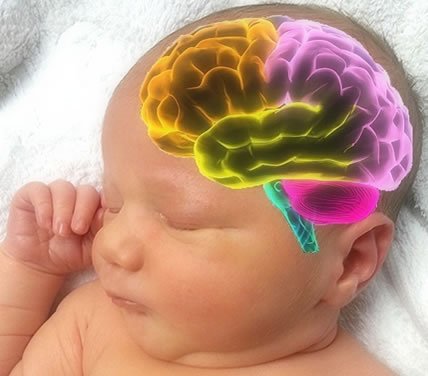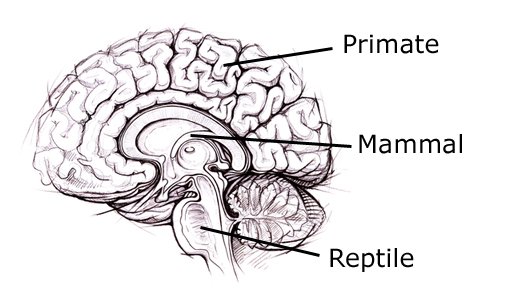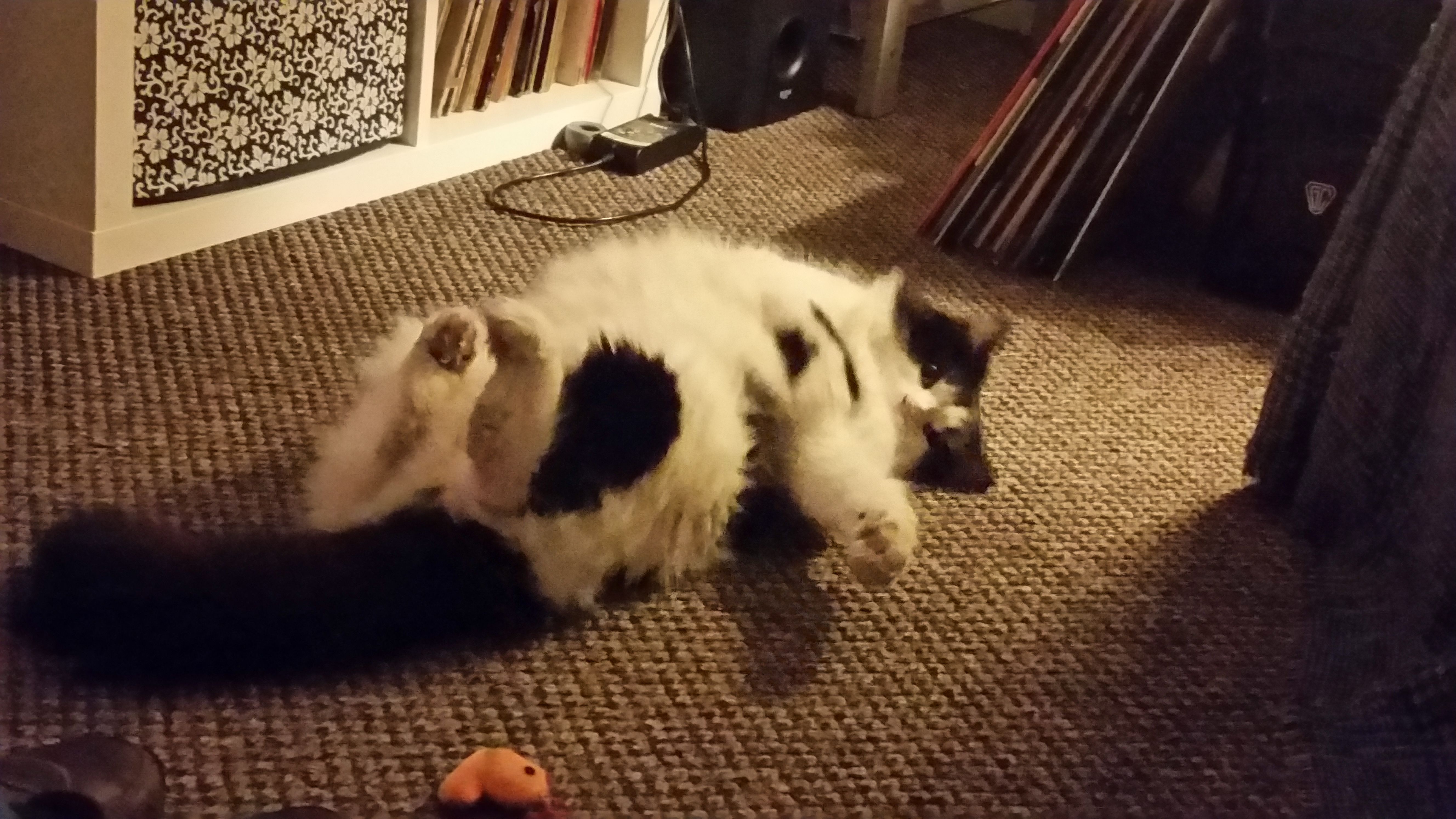Infant Mental Health: What it is and why it matters (part 1)

(Image credit: https://preventdisease.com)
Hi, Steemit!
This post is very different from all of the crochet projects that I've posted in the past... I'd like to share with you something else that I'm passionate about: Psychology.
I have worked in Psychology for several years now, and I have just completed a position in Infant Mental Health. The term 'Infant Mental Health' often leaves people confused, and I have to admit that I was one of those people before I started working in the area. For me, the experience has been so eye-opening in not only understanding the psychology of babies and children, but understanding how we as adults relate to each other and cope with stress- we were all babies once! In this post, I'm going to talk through a bit of the basic neurodevelopment that happens during infancy.
'But babies don't do anything except eat, sleep and poo!'
It is really easy to think that this is the case, but there is so much going on in a baby's brain in the first few years of life. Brain development actually begins 8 weeks after conception, and research suggests that our brains aren't fully mature until we're around 25 years old (explains why I was such a plonker in my early 20's...). The most important time for brain development is undoubtedly from conception to age 2, as this is when the brain is growing at an extremely fast rate. In fact, it is estimated that neurons in the brain are making up to 1,000,000 connections every second at key times during this period (for more info there's a nice video on this here: https://www.zerotothree.org/early-learning/brain-development).

(A synapse connecting two neurons; image credit: https://www.bodecology.com)
Now, what's really important about these connections that are being made is that they are highly dependent on babies' experiences. If a baby has repeated experiences that are positive, that is, if they signal that they have a need or are in distress (e.g. by crying) and their caregiver responds in a nurturing and caring way, then the baby will make connections in line with these experiences. On the other hand, if they signal distress and are met with an absent or harsh caregiver, their brain will wire up in response to those experiences. We build a brain to cope with the world that we live in. By responding in a nurturing way, we are teaching our children that they are worthy of care, that the world is a safe place, and that others can be trusted.
'But if I cuddle my baby every time they cry, won't that make them spoiled and demanding???'
This is a common parenting myth that has been passed down through generations- in fact, the opposite is true in most cases. I think that this comes from the idea that you don't want your baby to get 'used' to receiving care and then be demanding of it. However, if those positive brain circuits are set-up in the early months of life, then baby will be much easier to settle and will actually cry less because they feel secure. The only exception to this is in cases severe neglect- a baby will set up connections that are associated with nobody coming whether they cry or not and stop crying all together. So sad...
A good analogy that's often used to understand how this phenomenon works draws upon theories around how our brain evolved: The reptilian, mammalian and primate brains.

(Image credit: https://k12.thoughtfullearning.com)
The first layer of our brains to evolve was the 'reptilian brain'- which is aptly named as this part of our brain is very similar to the brains of reptiles. This part of our brain is mainly associated with survival- that is, avoiding harm. This is the part of the brain that is active when we're frightened and the 'fight, flight or freeze' response is activated.
The next layer of our brains to evolve was the 'mammalian brain'. Unlike reptiles, mammals nurture their young! This area is where basic 'lower level' emotions are activated- lust, excitement, fear, anxiety, etc. This is also where our reward system is. I like to use my cats as an example of this- they do what feels good and avoid what doesn't feel good. They don't go out and kill mice and then come home and feel guilty about it (i don't think so anyway...)!
The final layer of our brains to evolve was the neocortex- the 'primate' or 'human' brain. This part of the brain is complex and is where all of the higher functions associated with being 'human' happen- language, complex and abstract thought, reflection, 'higher' emotions like guilt and empathy, etc. This part of the brain is also what we use to 'dampen down' strong emotions from the lower parts of the brain. For example, we may feel very frightened or anxious about something (reptilian/mammalian brain), but by talking it through with someone we care about (using our human/primate brain), we are able to calm ourselves down and feel better about it.
What's important to remember is, that the 'human' layer of the brain is most dependent on the experiences that we have. Babies are born with almost fully developed reptilian and mammalian parts of their brain. It is the neocortex that develops after birth in response to our environment. What this means is that from birth, we have to be taught how to calm ourselves down when we are distressed and upset. The behaviours of our caregivers actually shape how we cope with stress.
By responding to our babies in a nurturing way, we are creating humans that are resilient and happy :)
One last thing for today- I just want you to know that I appreciate how difficult parenting can be at times, and these posts aren't intended to be guilt inducing; just informative. We do the best job that we can at the time with the information/resources available to us, and that information can be conflicting and confusing. I think that the Psychologist Winnicott put it best- it's about being 'good enough'- there's no such thing as a perfect parent!
I really hope that you found this interesting- please follow me at @shammyshiggs for my next post. I'll be discussing the role of hormones on brain development, toxic stress and attachment theory in the context of neurodevelopment.
Thanks for reading :)

Good post, Thanks @shammyshiggs for all this iportant info, Good work
Thank you !
U are welcome, And please help me by Upvoting
mm, u comment, and ask peeps to upvote u but u r not upvoting them!
or voting on their posts.
you have to give to recieve. spend more time voting on people and less time asking for votes and u will get more rewards. simples
This comment has received a 0.05 % upvote from @booster thanks to: @hamzaoui.
This comment has received a 0.05 % upvote from @booster thanks to: @hamzaoui.
Excellent article sammy. good to have you back on steemit. :-)
Cheers Steve :-) xx
Thanks for this
I am a sucker for a bit of evidence based info!
I should say too that I m looking forward to your next post!
Love your work!
Thank you, it means a lot :-)